ACC, Big East, Pac-12 place four each in Way-Too-Early Top 25
Despite the headline, it’s no longer Way-Too-Early. College basketball games start in less than two months and practices begin in less than two weeks — meaning the season is basically here. We’ve done monthly Way-Too-Early Preseason Top 25 rankings since the night Virginia beat Texas Tech in Minneapolis to win the national championship, but now it’s real.
So this is going to operate as the Top 25 until the next update … after the season begins. Feels good to say that.
There shouldn’t be a surprise at the top. Michigan State was in the No. 1 spot in the initial iteration of these rankings, and the Spartans did nothing to fall. While the teams directly behind them — Kansas and Kentucky — had offseasons filled with comings and goings, Tom Izzo’s group essentially stood still. Nick Ward did leave, but Cassius Winston stuck around and that’s pretty much all that mattered.
Barring a stunning change between now and the Champions Classic on Nov. 5 — only 54 days away! — Michigan State will start the season as the near-consensus No. 1 team in college basketball.

1. Michigan State Spartans
Previous: 1
Michigan State has all the pieces to make a run to the national championship: an elite point guard in Cassius Winston, a high-level scoring wing in Joshua Langford, perimeter shooters, capable bigs and a Hall of Fame coach in Tom Izzo. So what might hinder the Spartans this season? Last season, their biggest issues the second half of the season were taking care of the ball and keeping opponents off the offensive glass. While bringing in top-50 recruit Rocket Watts should enable Winston to take a few possessions off at the point guard spot, they do lose two of their three best rebounders. Xavier Tillman should be solid down low, but another big will need to step up alongside him. We’ll find out pretty quickly what Michigan State is made of this season; the Spartans face Kentucky, Seton Hall, Duke and possibly Kansas in the first four weeks.
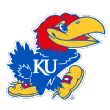
2. Kansas Jayhawks
Previous: 2
Bill Self had to remake this roster over the course of the offseason, including some surprising moves (Quentin Grimes leaving, Silvio De Sousa getting cleared, Isaiah Moss flipping from Arkansas to the Jayhawks), but he’s got the pieces to compete for a title. Devon Dotson is one of the premiere point guards in the country and Udoka Azubuike is a dominant force down low when he’s healthy and on the floor. There’s a ton of depth in Lawrence, too. One key could be the emergence of David McCormack as an alternative and/or depth for Azubuike. McCormack played an extended role after Azubuike’s injury last season and posted four double-figure scoring outings in his final seven games. Self will be able to mix-and-match as he pleases this season.
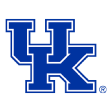
3. Kentucky Wildcats
Previous: 3
John Calipari returns only four contributors from last season, and the Wildcats’ leading returning scorer averaged just 7.7 points. That’s nothing new for Calipari and Kentucky, though, and the Wildcats do bring in a loaded recruiting class (surprise, surprise) to help reinforce the roster. The returnees will play leading roles, however. Ashton Hagans is a dynamite defender and will look to take the next step as a playmaker. Immanuel Quickley will battle five-star freshman Tyrese Maxey for a starting spot. EJ Montgomery and Nick Richards will have to show more down low, but Bucknell graduate transfer Nate Sestina adds a different dimension. The versatility of five-star Kahlil Whitney and shooting skill of late signee Johnny Juzang will make things interesting on the wing.
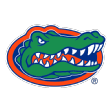
4. Florida Gators
Previous: 4
Florida’s outlook for the season changed completely when Virginia Tech graduate transfer Kerry Blackshear Jr. chose the Gators in late June. We’re talking about a player who immediately became the best big man in the SEC and one of the best frontcourt players in college basketball. He will anchor the interior. Early returns out of Gainesville are overwhelmingly positive on McDonald’s All-American point guard Tre Mann, and he and returning point guard Andrew Nembhard are going to be a handful for opposing backcourts. Then there’s five-star Scottie Lewis, whose athleticism and defensive ability give him lottery-pick potential. Noah Locke and Keyontae Johnson are also back, and top-50 recruit Omar Payne will provide depth down low. Mike White can put this team’s personnel up against anyone in the country.
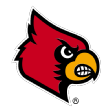
5. Louisville Cardinals
Previous: 5
Duke has the elite incoming recruiting class and North Carolina did an impressive job of rebuilding its roster in the spring, but Louisville quietly might have the best team in the ACC. The Cardinals did lose some depth when David Johnson suffered a shoulder injury in late July, but Chris Mack has the personnel to overcome his absence. Jordan Nwora should be a preseason All-American candidate, while Dwayne Sutton, Steven Enoch and Malik Williams all return after playing key roles up front. The perimeter will see some changes, most notably Saint Joseph’s graduate transfer Lamarr Kimble and five-star wing Samuell Williamson coming into the fold. Louisville struggled late in the season, but Kimble and Williamson add some scoring pop and Mack has consistently had strong defensive units.

6. Duke Blue Devils
Previous: 6
Duke is going to be an interesting team to assess heading into the season. The Blue Devils lose four starters from a year ago — including three top-10 picks — and while the recruiting class is ranked No. 2 in the country, it’s not filled with surefire superstars in the mold of Zion Williamson and RJ Barrett. It might be a more balanced unit, though. Tre Jones is back at the point guard spot, while Wendell Moore is a tough two-way player on the wing. Five-star Matthew Hurt can score inside and out, and elite center Vernon Carey Jr. is a force down low. Mike Krzyzewski will likely use Alex O’Connell for longer stretches due to his shooting ability, and Javin DeLaurier will have less on his plate in the paint. There might be some growing pains with this team, though, and Kansas in the Champions Classic won’t be an easy early test.

7. Oregon Ducks
Previous: 17
There might not be a Power 5 team that changed more from late April until the start of the season than Dana Altman’s Ducks. At one point in the spring, Oregon was down to three scholarship players following an exodus of three NBA draft early-entrants, two graduations and two transfers. But Altman went out and reloaded his roster to the point that the Ducks are the clear Pac-12 favorite. The August additions of five-star center N’Faly Dante and four-star guard Addison Patterson put them over the top, but securing graduate transfers Anthony Mathis (New Mexico) and Shakur Juiston (UNLV) and adding five-star forward CJ Walker and junior college star Chris Duarte won’t go unnoticed. Neither will the return of senior point guard Payton Pritchard and sophomores Will Richardson and Francis Okoro. If all the pieces fit, look out.
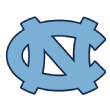
8. North Carolina Tar Heels
Previous: 8
This isn’t the usual Roy Williams roster, filled with starters who have been in the program for three or four years with plenty of ACC experience under their belt. In another departure from most Tar Heel groups, it’s also one that was completely revamped in the spring. No. 1 incoming guard Cole Anthony was the crown jewel, but ESPN 100 guard Anthony Harris and productive mid-major graduate transfers Justin Pierce (William & Mary) and Christian Keeling (Charleston Southern) were also late additions. Williams will need the returnees to take a step forward, though, especially Brandon Robinson and Leaky Black on the wings. Starting center Garrison Brooks and five-star freshman Armando Bacot should anchor the interior. With a tough early-season schedule, this is going to be an intriguing team to monitor.

9. Gonzaga Bulldogs
Previous: 7
Mark Few faces more roster questions than usual entering the season, with first-round picks Rui Hachimura and Brandon Clarke gone from the frontcourt and Josh Perkins and Zach Norvell leaving the backcourt. But he’s certainly not short of options. Graduate transfers Admon Gilder (Texas A&M) and Ryan Woolridge (North Texas) provide experience at the guard spots, and returnee Joel Ayayi was one of the more impressive players at the FIBA U19 World Cup. Corey Kispert and Filip Petrusev return up front, and Killian Tillie should be healthy. Few will need one or two of his several frontcourt newcomers to make an immediate impact, though. The best bets are likely ESPN 100 prospects Drew Timme and Anton Watson, but Oumar Ballo showed potential with Mali at the U19 World Cup. He could be a factor.
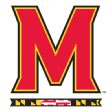
10. Maryland Terrapins
Previous: 10
Besides Bruno Fernando leaving early for the NBA draft, Mark Turgeon brings back essentially everyone else of note from last season’s Terrapins team. That includes one of the best inside-outside tandems in the country in point guard Anthony Cowan and big man Jalen Smith. Cowan was not at his best in the NCAA tournament (7-for-29 from the field), but is a terrific distributor who takes care of the ball, while Smith is a future pro who flashed his potential at times last season — but needs to do it on a regular basis. Turgeon surrounds those two with returnees Eric Ayala, Darryl Morsell and Aaron Wiggins, and also reinforced his frontcourt depth with the addition of three four-star prospects (a fourth, Chol Marial, will miss 3-4 months after undergoing surgery to repair stress fractures in both legs).
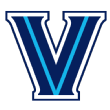
11. Villanova Wildcats
Previous: 9
Villanova is coming off a season that was difficult to grade, given that the Wildcats didn’t necessarily live up to preseason expectations, lost 10 games and were bounced in the NCAA tournament’s first weekend — but still won the Big East. And now Jay Wright’s team loses its two best players in Phil Booth and Eric Paschall. So why the optimism? Much of it centers around the additions of five-star freshmen Bryan Antoine and Jeremiah Robinson-Earl. Antoine suffered an offseason shoulder injury that could impact the start of the season, but is a high-level scorer. Robinson-Earl will be leaned on early up front, and he was terrific at the FIBA U19 World Cup. There’s also the expected development of returnees Collin Gillespie, Jermaine Samuels, Saddiq Bey and Dhamir Cosby-Roundtree, while Cole Swider could take a step forward.
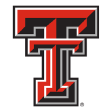
12. Texas Tech Red Raiders
Previous: 11
While much attention has been paid to the reloading efforts at Duke and Kentucky and Virginia, there’s a case to be made that Chris Beard and Tech have a bigger task than any of them. Only two players return from the Red Raiders’ national runner-up team: starting guard Davide Moretti and reserve Kyler Edwards. Beard and his staff have faced rebuilds like this before, but perhaps not with the level of expectation the program now has. There’s an excellent recruiting class heading to Lubbock, though, led by top-50 prospect Jahmius Ramsey, and Beard also dipped into the graduate transfer market for two guys who could start immediately in Chris Clarke (Virginia Tech) and TJ Holyfield (Stephen F. Austin). Tech’s opening few games are soft enough to give some time for the newcomers to acclimate to Beard’s system.
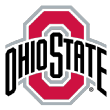
13. Ohio State Buckeyes
Previous: 12
Chris Holtmann is going to have an awful lot of options and versatility on his roster this season. Kaleb Wesson returns to anchor the interior; he’s one of the most efficient big men in the BIg Ten when on the floor. Six other rotation players also return, including starters Luther Muhammad and Andre Wesson. But more optimism surrounds the newcomers, as Holtmann landed Florida State transfer CJ Walker and top-50 recruit D.J. Carton to shore up the point guard situation — and also brought in top-50 forwards Alonzo Gaffney and E.J. Liddell to add different dimensions to the frontcourt. After the calendar turned to 2019 last season, Ohio State went just 8-14. But the biggest reason for those struggles came on the offensive end; with the additional firepower now on the roster, that shouldn’t be an issue.
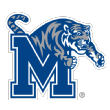
14. Memphis Tigers
Previous: 13
The most intriguing team in the country heading into the season. Penny Hardaway is bringing in the No. 1 recruiting class and essentially turning over the roster for his second year at the helm, leading to extremely high expectations for Memphis. There are five ESPN 100 prospects entering the fold — including three five-stars — but unranked four-star Damian Baugh is receiving rave reviews in the offseason. It will be interesting to see how Hardaway fits all his pieces together, but it appears likely he’ll start five freshmen. James Wiseman, Precious Achiuwa and D.J. Jeffries should lead the way up front, while Baugh, Boogie Ellis and Lester Quinones will battle returnees Tyler Harris and Alex Lomax in the backcourt. A Nov. 12 showdown with Oregon will be awfully telling — for both teams.
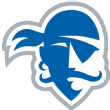
15. Seton Hall Pirates
Previous: 14
Seton Hall is essentially the same team it was last season, with only forward Michael Nzei departed from the 2018-19 version. It all starts with Myles Powell, one of the nation’s most dangerous scorers and a player capable of carrying the Pirates offensively for long stretches. But he will need more help this season, and Kevin Willard will once again count on Myles Cale, Quincy McKnight and Sandro Mamukelashvili — while also hoping for a step forward from Jared Rhoden. Rhoden showed flashes late in the season, scoring at least nine points in three of his final seven games. Seton Hall might have the two best individual defensive players in the Big East, as McKnight became a lockdown defender late in the season and Florida State transfer Ike Obiagu blocked 2.1 shots per game in just 10.7 minutes back in 2017-18.

16. Virginia Cavaliers
Previous: 15
It’s easy to make the argument that Virginia is the biggest shrug-your-shoulders team in the top 25 heading into the season, as nobody seems to know exactly how good the Cavaliers will be one year after winning the national championship. Key returnees Mamadi Diakite and Kihei Clark will anchor Tony Bennett’s defense — and as long as the defense is stout, Virginia will be just fine. But who will step up on the offensive end? Jay Huff has the skill, while Braxton Key showed potential at Alabama. Francisco Caffaro and Kody Stattmann looked good at the FIBA U19 World Cup. Tomas Woldetensae can shoot. Casey Morsell is an ESPN 100 recruit. There’s some pieces here, but it will be up to Bennett to find the right combination. Given his track record, that should work out pretty well.
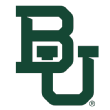
17. Baylor Bears
Previous: 16
Baylor hasn’t been getting enough attention this offseason, and we might even have the Bears too low entering the season. This is a team that was fairly underrated for most of last season, looking as good as any team in the Big 12 from mid-January until March. And now Scott Drew gets back a healthy Tristan Clark, who was the team’s second-leading scorer and top rebounder before suffering a knee injury in January. Jared Butler, Mark Vital and Mario Kegler all return, and Devonte Bandoo brought shooting in the second half of the season. The addition of transfers Davion Mitchell (Auburn) and Macio Teague (UNC Asheville) give Drew even more options. The Bears can make a statement on Nov. 8, as they travel to Alaska to face Washington and its two blue-chip newcomers. A win there, and attention won’t be an issue.
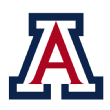
18. Arizona Wildcats
Previous: 18
After all the dust settled from a busy offseason, Arizona will enter the new season down four of its five starters from a team that finished tied for eighth in the Pac-12 and didn’t play in a postseason tournament. So why the top-20 ranking? Sean Miller went out and landed two of the best guards in the 2019 class in Nico Mannion and Josh Green. The two players will start immediately in the backcourt, and even more responsibility went on their shoulders after Brandon Williams was lost for the season after undergoing another knee surgery this summer. Early reviews on freshman big man Zeke Nnaji have been very positive, and productive center Chase Jeter returns down low. Miller also landed UC Irvine graduate transfer Max Hazzard to provide shooting. This campaign should look more like Miller’s 2013-2018 run than last season.
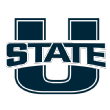
19. Utah State Aggies
Previous: 19
Once it was clear that star center Neemias Queta‘s knee injury at the FIBA U20 European Championships wasn’t a torn ACL, Craig Smith and the Aggies solidified their spot in the preseason top 25. Last season, they came out of nowhere to win 28 games and the Mountain West championship — they won’t sneak up on anyone this season. Queta and guard Sam Merrill form one of the best inside-outside tandems in the country, with Merrill earning Player of the Year honors a year ago. Utah State also returns three other players from its top-six rotation, so the two big stars will have help. We’ll get a good feel for how good Utah State will be in the non-conference portion of the season, with games against LSU, Saint Mary’s, BYU, South Florida and Florida before Christmas.
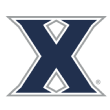
20. Xavier Musketeers
Previous: 21
We’ve grown higher on Xavier as the offseason has progressed. This is a team that won six of seven to end the regular season, then took Villanova to overtime in the Big East tournament before falling. And now Travis Steele has a year under his belt as head coach, and brings back four starters, all of whom averaged 11.0 points or more last season. Naji Marshall, in particular, could be poised for an emergence on the national scene. Quentin Goodin, Paul Scruggs and Tyrique Jones are also back as starters. But even more optimism comes from the arrival of a top-25 recruiting class that includes five four-star prospects, along with immediately-eligible transfers Jason Carter (Ohio) and Bryce Moore (Western Michigan). Steele has a deep and versatile team and a forbidding non-conference schedule.

21. Saint Mary’s Gaels
Previous: 20
This fact might be surprising, but Saint Mary’s has made the NCAA tournament just twice in the past six seasons — and last season the Gaels needed a West Coast Conference tournament title just to hear their name on Selection Sunday. They shouldn’t need any miracle March upsets to get back there this season. Jordan Ford is one of the best guards on the West coast and Malik Fitts is a productive inside-outside forward. Two other starters also return in Tanner Krebs and Tommy Kuhse, but Randy Bennett received big news over the summer when Aaron Menzies was granted another year of eligibility. The 7-foot-3 Menzies averaged 11.3 points, 8.9 rebounds and 2.3 blocks at Seattle two seasons ago, but missed all of last season due to a hand injury. He will give the Gaels a much-needed inside presence.
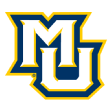
22. Marquette Golden Eagles
Previous: 22
There are a lot of questions for Marquette heading into the season. Are the Golden Eagles more like the team that started 23-4 — or the one that finished by losing six of seven, including a 19-point loss to Murray State in the NCAA tournament? How do they replace Sam and Joey Hauser? Can Markus Howard get some more help? That last one might be the biggest key. The Hauser brothers gave Steve Wojciechowski consistent complementary options, but now he’ll have to lean on Utah State transfer Koby McEwen. McEwen should also allow Howard — arguably the best scorer in college basketball — to move off the ball more. Marquette took a big step forward defensively last season, and Sacar Anim and Theo John will anchor the Golden Eagles at that end of the floor again.
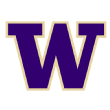
23. Washington Huskies
Previous: 23
Washington won the Pac-12 title by three games last season, but now the Huskies lose four of five starters and five of their top six scorers. But Mike Hopkins is bringing in two elite recruits in Isaiah Stewart and Jaden McDaniels, both top-10 prospects and likely one-and-done players. Stewart might be the most college-ready freshman in college basketball, while McDaniels is tantalizing and has a very high ceiling. Hopkins will need both players to be stars. He will also have to hope Kentucky transfer Quade Green is eligible to start the season and is the five-star point guard he was coming out of high school. Top returning scorer Nahziah Carter will be counted on heavily, too. The Huskies will be thrown into the fire pretty quickly, with games against Baylor, Tennessee and Gonzaga in the first nine games of the season.
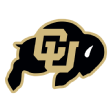
24. Colorado Buffaloes
Previous: 24
There are other Pac-12 teams with more hype entering the season, but Colorado might get off to the hottest start of anyone in the league. There are no transfers to blend in or a slew of freshmen to get acclimated; the Buffaloes return all five starters and every rotation player from a season ago. They won 12 of their final 15 games last season and were outstanding defensively down the stretch. McKinley Wright is one of the more underrated point guards nationally, while Tyler Bey is a double-double machine who took his game to a new level late in the season. Shane Gatling, D’Shawn Schwartz, Lucas Siewert and Evan Battey are also all back. Tad Boyle and the Buffaloes haven’t been to the NCAA tournament since 2016 and haven’t won a tourney game since 2012; both streaks should end this season.
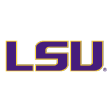
25. LSU Tigers
Previous: 25
LSU is hoping to put the drama of last spring in the rearview mirror, although the Tigers will have to do it without NBA early-entrants Tremont Waters and Nazreon Reid. But they still have Will Wade, who led LSU to the SEC regular-season title in just his second season at the helm. And they still have plenty of talent, starting with the return of guards Javonte Smart, Skylar Mays and Marlon Taylor. Incoming five-star forward Trendon Watford will be counted on heavily from day one as a versatile frontcourt scorer, and matchup problems Darius Days and Emmitt Williams will get chances to take a step forward up front. Incoming freshman James Bishop could be the sleeper; he was a talented scorer at the high school level and will bring some offensive punch. This is arguably the third-best team in the SEC.
Next in line:
USC (previous: next in line)
Harvard (previous: next in line)
VCU (previous: next in line)
Auburn (previous: next in line)
Cincinnati (previous: next in line)
Dropped out:
None